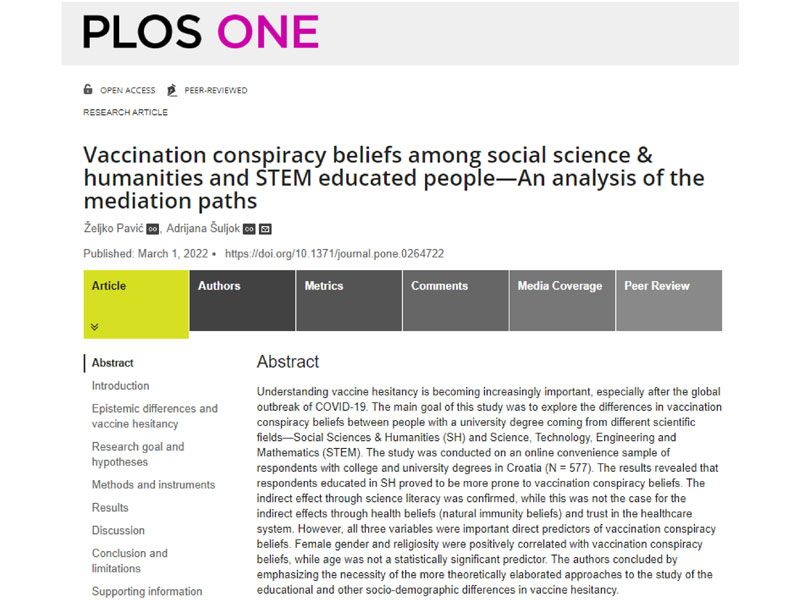Notifications list
Vaccination conspiracy beliefs among social science & humanities and STEM educated people - an analysis of the mediation paths
Published: 04.03.2022.

Associate Prof. Željko Pavić, PhD and Adrijana Šuljok, PhD are the authors of the original scientific paper Vaccination conspiracy beliefs among social science & humanities and STEM educated people - an analysis of the mediation paths, published in the journal PLoS ONE, 17 (3), indexed in Q1 (Scopus) and Q2 (WoSCC) for multidisciplinary sciences in 2020.
Understanding vaccine hesitancy is becoming increasingly important, especially after the global outbreak of COVID-19. The main goal of this study was to explore the differences in vaccination conspiracy beliefs between people with a university degree coming from different scientific fields—Social Sciences & Humanities (SH) and Science, Technology, Engineering and Mathematics (STEM). The study was conducted on an online convenience sample of respondents with college and university degrees in Croatia (N = 577). The results revealed that respondents educated in SH proved to be more prone to vaccination conspiracy beliefs. The indirect effect through science literacy was confirmed, while this was not the case for the indirect effects through health beliefs (natural immunity beliefs) and trust in the healthcare system. However, all three variables were important direct predictors of vaccination conspiracy beliefs. Female gender and religiosity were positively correlated with vaccination conspiracy beliefs, while age was not a statistically significant predictor. The authors concluded by emphasizing the necessity of the more theoretically elaborated approaches to the study of the educational and other socio-demographic differences in vaccine hesitancy.
The paper is available at the link: http://idiprints.knjiznica.idi.hr/983/.
